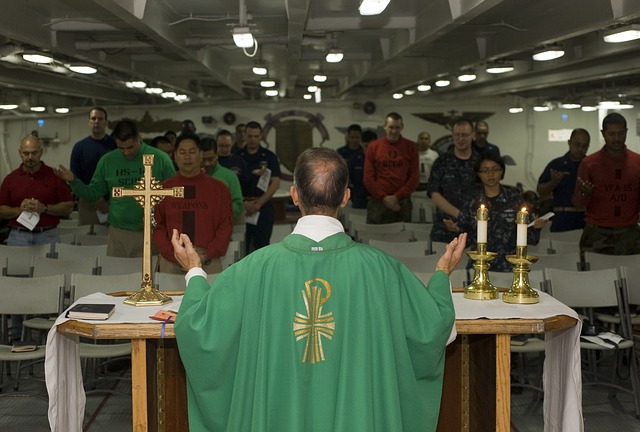America is becoming more secular. This trend is evident whether one looks at public policy impact of religious institutions or survey research findings. The American Catholic Church, for instance, opposes the legality of the death penalty, abortion, euthanasia, and same-sex marriage, while US Catholics are abandoning the Church in droves. How should the Catholic Church respond to this challenge?
In recent years, two overlapping but distinct answers began to crystallize. On the one hand, there are some who believe that religious people should retreat into the confines of their local communities. This version has been best articulated by Rod Dreher in his The Benedict Option: A Strategy for Christians in a Post-Christian Nation. Dreher has no illusions about the state of American politics, and for that matter about the political program of the Republican Party. Politicians want to win elections and stay in power, to achieve that they are wiling to make promises they cannot keep. In theory, religious citizens are able to hold such politicians accountable by not voting for them in the future. In practice, the alternative – the Democratic Party – is not very appealing to such constituents to say the least. Conservative politicians stand for less change, for supporting long-established American traditions that are rooted in Christian thought. That at least is the official story but the reality is more mundane. The history of legalization of abortion, for example, has more to do with the myopia of the Republican Party in the 1960s and 1970s, than with a political power of their liberal opponents.
Overall, Dreher is voicing an important point: the Republican Party does not and should not enjoy a monopoly on religious voters. Catholics are the best example of this, splitting their vote almost equally between the two major US parties. Dreher argues for a focus on local and organic development, a retreat from politics (at least national politics). I am sure his advice resonates with many religious readers but from a point of view of the Catholic Church, and especially from a point of view of Catholic bishops, his recommendation are wise but run against the very mission of the Church.
The confines of this mission are outlined by Archbishop Charles J. Chaput in his Strangers in a Strange Land: Living the Catholic Faith in a Post-Christian World. Archbishop Chaput wrote an excellent book covering a wide-range of topics from abortion, education, and politics, to social scientists and their tendency to objectify human beings. One does not have to agree with the author to appreciate the depth of his arguments. Dreher was a Methodist who became a Roman Catholic but now belongs to the Eastern Orthodox Church, and this fact is reflected in his book because we get a feeling that Dreher is still searching. Not so with Chaput.
If by conservative bishop we mean a bishop that is rooted in Catholic orthodoxy, then Archbisup Chaput is an archetype of such as a leader. Chaput is not looking for a new and better religious home, he already has one. This simple fact is reflected on every page of his book, and that is also why is argument clashes with that expressed in The Benedict Option. According to Chaput, every bishop is called to actively engage in politics. The emphasis might be on proposing rather than imposing, but the imperative to engage is still there. The very mission of Catholic hierarchy and by extension of Catholic flock is to live in this world while not being of this world.
These two books outline different – although overlapping – visions for the Church. Dreher’s emphasis on organic development is perhaps best seen as an addition to the view outlined by Archbisup Chaput who would argue that national level politics simply cannot be ignored. It might be true that neither Trump nor Clinton were viable alternatives for serious Catholics but the lack of options does not justify inaction. Dreher and Chaput present different visions that are likely to be synthesized by the Church in the near future. That is why these two books are a must read for anyone interested in how religious actors think about the contemporary US politics.



